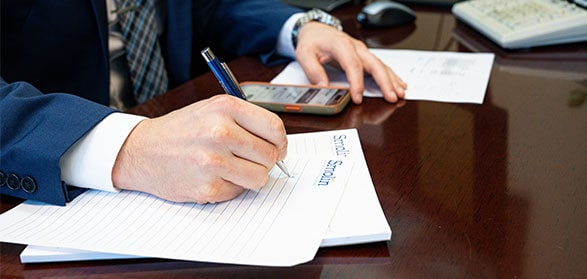EXPERT GUIDANCE FOR YOUR ESTATE TAX PLANNING NEEDS.
Smolin is your trusted partner for comprehensive estate tax planning services. With our extensive knowledge, we provide tailored strategies to ensure that your assets are well-managed and your family is cared for after your passing. We recognize that effective estate tax planning is essential for both individuals and businesses, and we are committed to helping you maximize your wealth while minimizing stress for your loved ones.
ADDRESSING
ESTATE TAX PLANNING.
At Smolin, we offer a range of estate tax planning services designed to meet your specific needs. From individuals to business owners, we are here to guide you through every step of the estate tax planning process:
Business Succession Planning
Helping you plan for a smooth business transition that protects your legacy
Estate Planning for Individuals
Crafting customized wills and trusts to ensure your assets are distributed according to your wishes.
Financial and Tax Planning for Transitions
Providing expert advice on minimizing tax liabilities and ensuring the financial stability of the business during and after the transition.
Living Wills and Trusts
Creating documents that ensure your wishes are honored and your estate is properly managed.
Tax Mitigation Tactics
Developing solutions to reduce the tax burden on your estate.
Wealth Transfer Strategies
Designing strategies to transfer wealth while minimizing tax liabilities.

The Smolin Approach.
At Smolin, we understand that estate planning requires a personalized approach that adapts to your unique circumstances. Our specialists are dedicated to crafting customized solutions that reflect your wishes while ensuring compliance with current laws and regulations. By collaborating closely with you, we strive to create an estate plan that safeguards your legacy and secures the future for your beneficiaries.
Need Answers?
Our Estate Tax Planning team is always up-to-date on changes in estate laws, ensuring we provide you with the most relevant strategies for your needs.